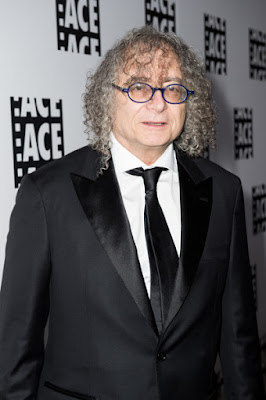if you wish push play to listen to the soundtrack
"it´s not a movie
until it´s edited "
-Steven Spielberg
"Creativity isn’t job specific. If you know how to be creative, you can just jump from job to job with no training and do them pretty well. The technical part of any job is 10%. 90% is Creativity."
-Robert Rodriguez
Movies like: The Adventures of Robin Hood, Gone with the Wind, From Here to Eternity, Around the World in 80 Days, The Bridge on the River Kwai, Ben-Hur, Lawrence of Arabia, The Sound of Music, Grand Prix , Bullitt, Patton, The French Connection, Jaws, Rocky, Star Wars, Raging Bull, Raiders of the Lost Ark, The Last Emperor, Who Framed Roger Rabbit, JFK, Unforgiven, Saving Private Ryan, The Matrix, Black Hawk Down, The Lord of the Rings: The Return of the King, The Departed, The Bourne Ultimatum, The Social Network, The Girl with the Dragon Tattoo, Gravity, Whiplash....have something in common, they´ve all won the Academy Award Achievement for Best Film Editing
It´s OSCAR WEEK, my favorite award of the evening is FILM EDITING. I feel this tells me the best film of that year. I have all the respect for the editing CRAFT. It is an art form. It is a vocabulary. The right cut, can make a film go from misunderstood to masterpiece. The wrong cut can change beautiful into dreadful. Anyone can sit, and make a cut, but very few know where to do it and most importantly.... how to make sense out of nonsense.

Film editing is part of the creative post-production process of filmmaking. The term film editing is derived from the traditional process of working with film, but increasingly involves the use of digital technology.
"There are certain tools you use and that becomes a vocabulary. You need to know how ideas and emotions are expressed through a visual form"
-Martin Scorsese
The film editor works with the raw footage, selecting shots and combining them into sequences to create a finished motion picture. Film editing is described as an art or skill, the only art that is unique to cinema, separating filmmaking from other art forms that preceded it, although there are close parallels to the editing process in other art forms such as poetry and novel writing. Film editing is often referred to as the "invisible art" because when it is well-practiced, the viewer can become so engaged that he or she is not even aware of the editor's work.
Film editing is an art that can be used in diverse ways. It can create sensually provocative montages; become a laboratory for experimental cinema; bring out the emotional truth in an actor's performance; create a point of view on otherwise obtuse events; guide the telling and pace of a story; create an illusion of danger where there is none; give emphasis to things that would not have otherwise been noted; and even create a vital subconscious emotional connection to the viewer, among many other possibilities. Editors can completely control how the audience feels emotionally throughout a film.
Here are some great examples of people rarely seen, almost invisible, but known for their talent as Film Editors speaking about the craft of editing.
On its most fundamental level, film editing is the art, technique, and practice of assembling shots into a coherent sequence. The job of an editor isn’t simply to mechanically put pieces of a film together, cut off film slates, or edit dialogue scenes. A film editor must creatively work with the layers of images, story, dialogue, music, pacing, as well as the actors' performances to effectively "re-imagine" and even rewrite the film to craft a cohesive whole.
Editors usually play a dynamic role in the making of a film. Sometimes, auteurist film directors edit their own films, for example Akira Kurosawa and The Coen Brothers.
Film editing is an art that can be used in diverse ways. It can create sensually provocative montages; become a laboratory for experimental cinema; bring out the emotional truth in an actor's performance; create a point of view on otherwise obtuse events; guide the telling and pace of a story; create an illusion of danger where there is none; give emphasis to things that would not have otherwise been noted; and even create a vital subconscious emotional connection to the viewer, among many other possibilities. Editors can completely control how the audience feels emotionally throughout a film.
Here are some great examples of people rarely seen, almost invisible, but known for their talent as Film Editors speaking about the craft of editing.
"You have in your HANDS the POWER to influence people sitting in seats that they paid for "
MICHAEL KAHN
LEGENDARY FILM EDITOR
Kahn is the most-nominated editor in Academy Awards history with eight nominations
Close Encounters of the Third Kind 1977
Poltergeist 1982
Raiders of the Lost Ark 1981
The Goonies 1985
Fatal Attraction 1987
Jurassic Park , Schindler´s List 1993
Saving Private Ryan 1998
Bridge of Spies 2015
"A GOOD EDITOR MUST HAVE A GOOD SENSE OF HOW TO TELL A STORY, A SENSE OF RYTHM, IS LIKE TELLING A JOKE"
Walter Murch
Legendary film editor
The Godfather: Part II (1974, sound)
American Graffiti (1973, sound)
The Godfather (1972, production consultant)
Apocalypse Now (1979, sound montage, film editor)
"There's a feeling of movement in telling a story and there is a flow. A cut that is off-rhythm will be disturbing and you will feel it, unless you want it to be like that. On Jaws, each time I wanted to cut I didn't, so that it would have an anticipatory feeling — and it worked."
Verna Fields
Legendary film editor
(21 March 1918 – 30 November 1982)
What's Up, Doc? (1972)
American Graffiti (1973)
Sugarland Express (1974)
Jaws (1975)
Fields came into prominence as a film editor and industry executive during the 'New Hollywood' era (1968–1982). She had established close ties with the directors Peter Bogdanovich, George Lucas, and Steven Spielberg early in their careers, and became known as their "mother cutter"; the term "cutter" is an informal variation of "film editor".
"Steven told me it was because I had cut the first picture that was a monumental success in which you can really see the editing. And people discovered that it was a woman who edited Jaws."
-Verna Fields
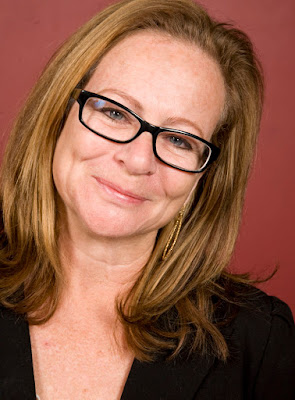
Sally JoAnne Menke
(December 17, 1953 – September 27, 2010)
RESERVOIR DOGS (1992)
PULP FICTION (1994)
Jackie Brown (1997)
Kill Bill (2003)
Inglourious Basterds (2009)
"You have to be able to adjust to the needs of the director, you have to be able to listen, to mold, to help the director. It has to be a collaboration."
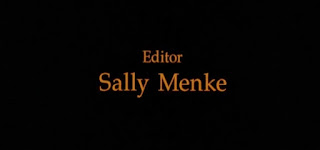
Was an American film and television editor with more than 20 feature film credits. She had a long-time collaboration with director Quentin Tarantino, having edited all of his films until her death. Menke was nominated for the Academy Award for Film Editing for Tarantino's Inglourious Basterds and Pulp Fiction.
"Don´t feel compelled to take the biggest salary, take the jobs that are more fun and interesting to you"
-Sally Menke
"You get to contribute so significantly in the editing room because you shape the movie and the performances," she says. "You help the director bring all the hard work of those who made the film to fruition. You give their work rhythm and pace and sometimes adjust the structure to make the film work - to make it start to flow up there on the screen. And then it's very rewarding after a year's work to see people react to what you've done in the theater."
Thelma Schoonmaker
Thelma Colbert Schoonmaker (born January 3, 1940) is an American film editor who has worked with director Martin Scorsese for over forty years. She has edited all of Scorsese's films since
Raging Bull (1980)
The Aviator(2004)
The Departed (2006)

"Editing is a lot about patience and discipline and just banging away at something, turning off the machine and going home at night because you're frustrated and depressed, and then coming back in the morning to try again."
-Thelma Colbert Schoonmaker
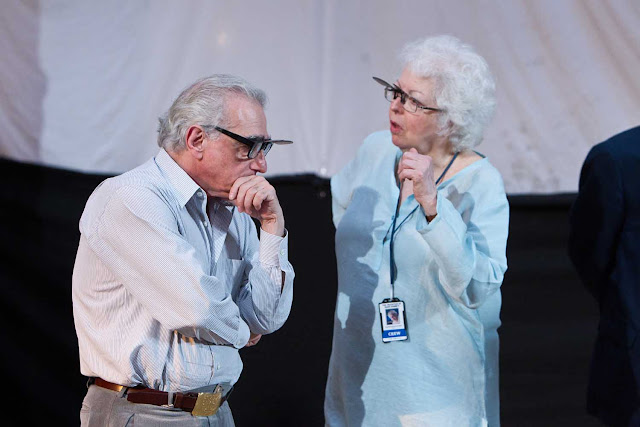
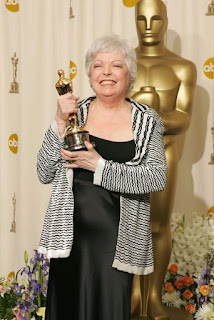
When asked how it was that such a nice lady could edit Scorsese's violent gangster pictures, Thelma replied with a smile, "Ah, but they aren't violent until I've edited them."
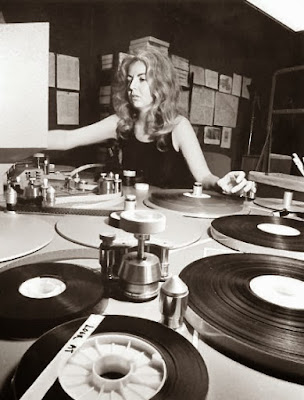
“I think Marty’s use of violence is very valid. He never uses it gratuitously, he always makes a very strong point….if you're going to show violence and it’s done with conviction the way Marty does it then it is correct.”
-Thelma Colbert Schoonmaker
Roderick Jaynes
It's not surprising if you haven't heard of two-time Oscar-nominated editor Roderick Jaynes, who is credited with cutting every film Joel and Ethan Coen have made.
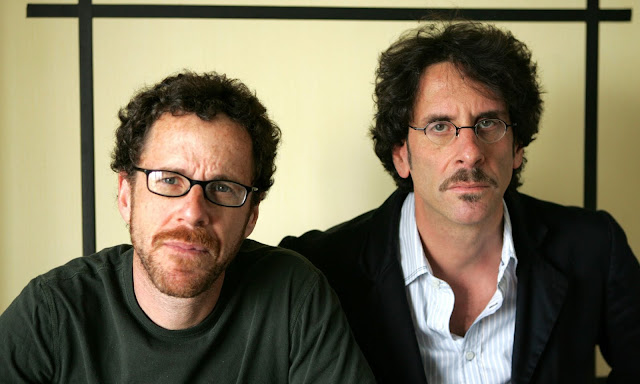 These fraternal filmmakers have described him as a cantankerous British chap whose in his late 80s or early 90s. But in all their years working with him, Jaynes has only ever spoken out about their collaboration once. Of course, that's pretty impressive considering Jaynes doesn't exist.
These fraternal filmmakers have described him as a cantankerous British chap whose in his late 80s or early 90s. But in all their years working with him, Jaynes has only ever spoken out about their collaboration once. Of course, that's pretty impressive considering Jaynes doesn't exist.
A creation of the Coens, Jaynes is little more than a pseudonym the brothers share when cutting their movies together. Though he's not up for any honors this year, with the Academy Awards around the corner, it seemed a good time to look back to the closest thing to an interview "Jaynes" ever granted. It's from The Guardian circa 2001 (via Movies.com) and in it, he reveals how he and the Coens came up with the title for The Man Who Wasn't There.
The nominees for this years best editing are:
THE REVENANT
Edited by
"you create the illusion of the invisibility of an edit. It’s fascinating to hear that."
if you wish push play to watch a clip of the film
"we’re following this vocabulary of the long takes so you have to still carry that discipline of that cutting pattern into every scene. And then, you have to look at it and say, “well, now that I’ve done that, where can I break that a little bit so that you can kind of surprise the audience so that they don’t get into this almost trance-like state where you’re suddenly not as engaged as you would otherwise be.” It was really fun to go on that journey and find how the evolution of that."
-Stephen Mirrione
STAR WARS: THE FORCE AWAKENS
Edited by
Maryann Brandon and Mary Jo Markey.
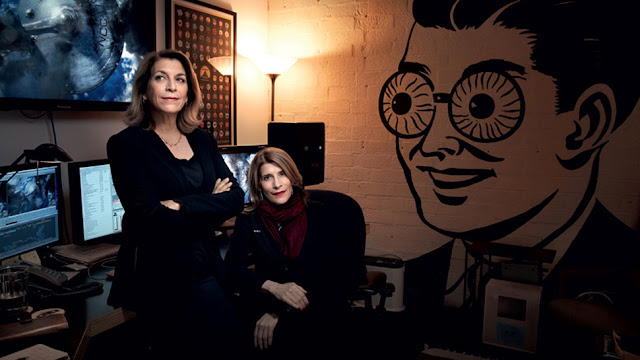
"On a lot of action films, the goal is maximum excitement. With J.J.'s films, our action is really cut differently. We always want our movies to be exciting, but we're also really interested in being inside the characters' heads and seeing it from the characters' point of view. The action in J.J.'s movies has to be attached to what the character is experiencing in that action moment. We're always trying to play it through that character's eyes, and not every director is as interested in that."
-Mary Jo Markey
if you wish push play to watch a clip of the film
" We find a way to make the action sequences come out of the emotional sequences. It's important for us as a team of filmmakers to find the emotional journey to, say, if a planet is going to blow up. And that's hard to do."
-Maryann Brandon
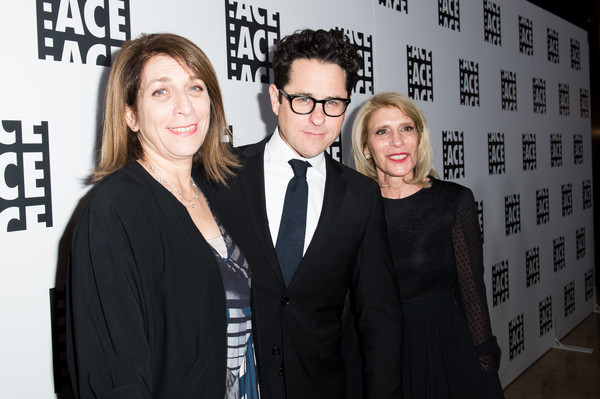
Mad Max: Fury Road
Edited by Margaret Sixel
“Editing is not merely a technical exercise—it is intellectual, emotional and ultimately, like all artistic endeavors, intuitive”
-Margaret Sixel
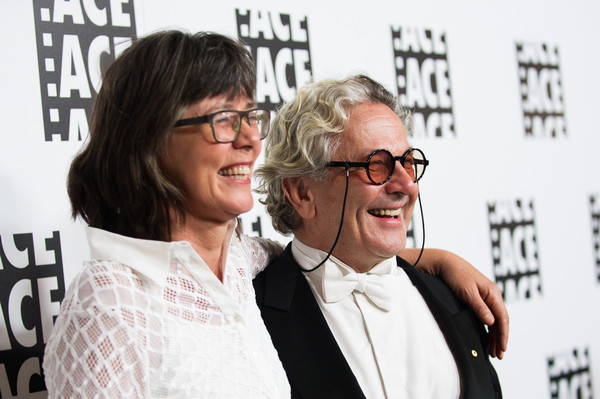
if you wish push play to watch a clip of the film
The Big Short
Edited by
Hank Corwin
"You know, it was actually a lovely thing. Because the actors occasionally did stray … but for me, just as an editor, I’m always looking to really be involved with them, to almost be in a first-person situation. I want it to be experiential for someone watching it. So I’ll look for moments where the actors aren’t necessarily “acting,” just to bring in that reality. Because these guys were improvising, and they’d be reaching and searching, many times I found the moments when they were searching."
-Hank Corwin
if you wish push play to watch a clip of the film
Spotlight
edited by
Tom McArdle
“It has gotten trendy for editors to have a high desk and stand while editing these days, but I am not one of those people. I like to sit”
-Tom McArdle
-Tom McArdle
if you wish push play to watch a clip of the film
EDITORS THAT BECAME DIRECTORS:
David Lean edited Pygmaglion (1938) Directed Lawrence of Arabia
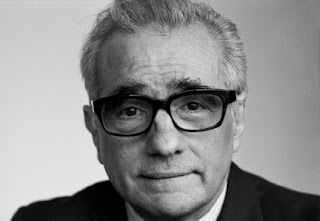 Martin Scorsese edited Woodstock Directed Raging Bull
Martin Scorsese edited Woodstock Directed Raging Bull
It´s very hard to decide on only one wins, one editor or one film or only one performance, one winner, one Oscar? Each film had its problems, conflicts and solutions. What we see on the movie theatre is the final product of many ,many years of hard work and the convined talents of true craftsmen which heart, soul and experience is seen on the big screen on every frame. I love movies, i love watching the Oscars.
"A lot of early magicians began experimenting, using basically what is cinema to do their illusions. And of course we know that some of the early pioneers, like Meliès and what have you, were magicians who used cinema to create illusions. So I think cinema always had -- as did theater for me -- this ability to create some kind of magic, either through lighting -- but to use technology to create magic is what appealed to me, I think."
-Francis Ford Coppola















